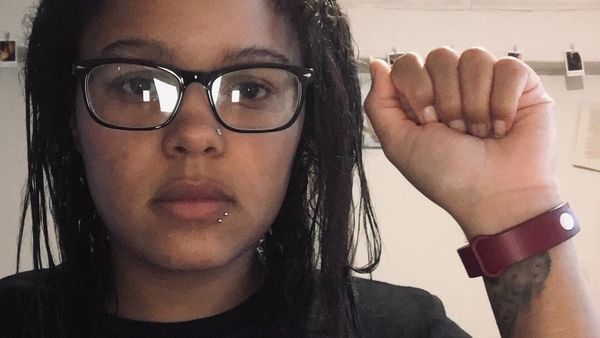It’s with heavy hearts that we add another nine names onto the long roster of victims that have fallen to shootings in the recent years of American history. Hearts so heavy, in fact, that when I sat down to write this piece, I wondered for a moment if The Odyssey was the place to submit it. I wasn’t too sure if this topic had a place among the comedic articles that I read to turn a bad day around. It wasn’t until I realized exactly what I was up against in the media that I understood that this was the perfect place to open a conversation among students about the massacre.
On June 17, 2015, a shooting occurred during an evening bible study at Emanuel African Methodist Episcopal Church in Charleston, South Carolina. Suspect Dylann Storm Roof, who sat in the study for an hour before opening fire, was taken into police custody the following morning. There were nine victims who died and three survivors.
These are the facts that we know.
Already, within hours of this news, media outlets are releasing articles that seem to be eerily in defense of Roof, abandoning factual information for opinion-based quotes.
What makes me so uncomfortable about these types of headlines is that they remind me too much of the headlines that came out about victims like Trayvon Martin and Michael Brown. They’re almost exact opposites of each other. While articles try to justify and defend Roof, a short walk back in history reminds us of the less-than-supportive words they used to describe Martin, Brown, and others in their situations. They were considered thugs, criminals, drug addicts, or worse. Maybe I’m missing something, but sticking up for a killer when you can’t stick up for the killed doesn’t make sense to me. The fact of the matter is, we are making the names of these killers more well-known than the names of the killed.
When it comes down to cases like Roof’s, our country struggles with understanding and defining exactly what the case is. Roof does not look like what the media wants him to look like to accurately describe his crimes. He does not fit the average American’s description of a "terrorist." People will hesitate to use that word to describe him.
However, according to the Federal Bureau of Investigation, “Domestic acts of terrorism must include violent acts dangerous to human life that violate the law, must appear intended to intimidate a civilian population […], and must occur primarily within the territorial jurisdiction of the United States.”
Nowhere in here is a race or ethnicity disclosed, nor has there ever been. When you take that definition into consideration, Roof’s actions were not those of a nice, quiet boy. They were those of a domestic terrorist. Something newscasters don't wants to admit it.
The takeaway from this case is why I wanted to write the article for The Odyssey in the first place. As college students, we’re the voice of the next generation in things like the criminal justice system, politics, the media, and social issues. It’s no longer just a “good thing” for us to form our own opinions about what’s happening in the world. It’s necessary. We are bombarded by the media in every corner of our lives. Being able to take in the messages that they’re sending and interpret them in a way that allows us to think for ourselves is vital. We cannot allow ourselves to continue to swallow the information that they spoon-feed us without thinking critically about it. That's how we let those like Roof get away with their crimes, even when they're within police custody: by not holding them accountable.
So, start conversations. Talk to your parents, your friends, your roommates, your co-workers, talk to anyone who will listen about this. Even if you disagree with every single point I’ve made thus far, the important part is that you get that conversation going. This is the only way for people to learn new things. If you don't agree, go ahead, tell everyone how wrong I am, and give them reasons why. Don’t fall into the trap of, “He said, she said,” and just relay what you’ve heard on the news. Form opinions, get your wheels turning, and find your voice.
If you would like to donate directly to the Emanuel African Methodist Episcopal Church to show your support for the victims of the shooting and their families, click here.
Photo credit: https://twitter.com/thedailybeast






















